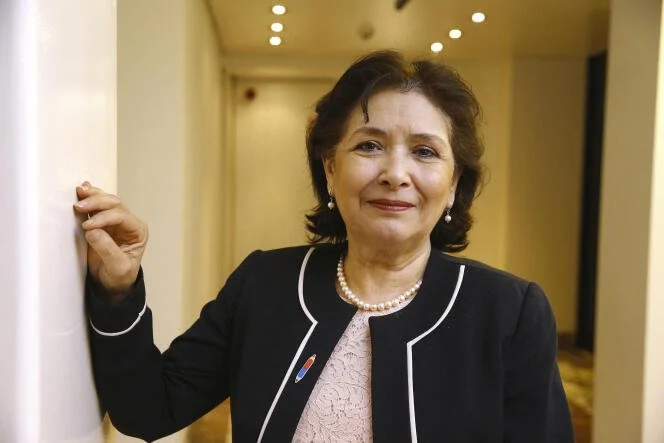Tunisia: Adala for All denounces the violation of the precepts of innocence and freedom against former president of the Truth and Dignity Commission, Sihem Bensedrine
Adala for All Association calls on the Tunisian authorities to respect the principles of fair trial as stated in the Tunisian Constitution, Article 14 of the International Covenant on Civil and Political Rights, Article 7 of the African Charter on Human and Peoples’ Rights, and the procedures stipulated in Tunisian law, including the Code of Criminal Procedure.
This practice of suspicious arrests and procedural violations of the principles of fair trial is a continuation of what Tunisia has been witnessing in general since President Kais Saied’s coup against the 2014 Constitution, his monopoly and usurpation of all authorities, the gradual destruction of Tunisian state institutions, and a counterattack against the Revolution of Freedom and Dignity, contrary to what the official rhetoric claims.
Adala for All Association (AFA) denounces the violation of the precepts of innocence and freedom and the suspicion of subjugating the judiciary and violating procedural guarantees, under the pretext of fighting corruption, against the former president of the Truth and Dignity Commission, Sihem Bensedrine, amid the catastrophic deterioration of the judiciary in Tunisia.
On Thursday, 1 August 2024, an arrest warrant was issued for Sihem Bensedrine for her imprisonment. Bensedrine, a former Tunisian opposition figure, was arrested following investigations based on a complaint by a member of the commission, Ms. Ibtihel Abdellatif, on the falsification of the commission’s final report on the Tunisian state’s compensation file in the case of the Franco-Tunisian Bank.
Adala for All maintains that Bensedrine’s arrest has no legal justification. The arrest failed to meet the requirements of Article 85 of the Tunisian Code of Criminal Procedure, as Ms. Bensedrine has not missed any investigation session when summoned since the complaint was filed in 2020. In March 2023, the Economic and Financial Judicial department issued a travel ban prohibiting Bensedrine from leaving the Tunisian Territory. Bensedrine continues to contend with the travel ban, despite the absence of any new objective evidence that would justify resorting to her precautionary arrest. Bensedrine has a known place of residence, and she poses no danger when free .
AFA further denounces judicial harassment and the use of known repressive practices, as the investigative judge inthis case was changed and transferred, without his request, to the Jendouba governorate. These arbitrary transfers are often disciplinary when a judge refuses orders from the executive authorities, amid absence of a disciplinary council. This can be considered a negation of the principle of freedom and a violation of the procedural guarantees of the independence of the Tunisian judiciary, both individually and institutionally.
AFA condemns the Ministry of Justice’s arbitrary and unregulated use of work memoranda to transfer judges, change the composition of courts and their supervisors, and change members of the Public Prosecution, investigative judges, and government bodies after interrogations of judges by the General Inspectorate. This pattern resembles retaliatory and punitive measures to President Kais Saied, who dissolved the Supreme Judicial Council in February 2022 and dismissed 57 judges without the slightest respect for legal procedures.
Bensedrine’s pre-trial detention came after numerous media campaigns by some pro-regime social media pages. The case against Bensedrine indicates a political exploitation of the judiciary two months before the planned elections and intimidation of anyone who is against the current policy of the ruling regime, and further indicates a political trial that procedurally threatens the principles of a fair trial.
Adala for All Association calls on the Tunisian authorities to respect the principles of fair trial as stated in the Tunisian Constitution, Article 14 of the International Covenant on Civil and Political Rights, Article 7 of the African Charter on Human and Peoples’ Rights, and the procedures stipulated in Tunisian law, including the Code of Criminal Procedure.
This practice of suspicious arrests and procedural violations of the principles of fair trial is a continuation of what Tunisia has been witnessing in general since President Kais Saied’s coup against the 2014 Constitution, his monopoly and usurpation of all authorities, the gradual destruction of Tunisian state institutions, and a counterattack against the Revolution of Freedom and Dignity, contrary to what the official rhetoric claims.


